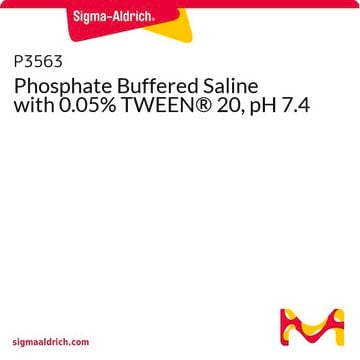A7888
Bovine Serum Albumin
heat shock fraction, suitable for RIA, pH 5.2, ≥96%
Synonym(s):
Albumin bovine serum, BSA, Bovine albumin
About This Item
Recommended Products
biological source
bovine
grade
RIA grade
Assay
≥96%
form
lyophilized powder
quality
suitable for RIA
mol wt
~66 kDa
purified by
heat shock fractionation
packaging
poly bottle of
origin
USA origin
technique(s)
blood typing: suitable
loss
≤5%
pH
5.2
solubility
water: soluble (40 mg/ml)
suitability
suitable for insulin RIA procedures
UniProt accession no.
foreign activity
BT virus, none detected
VSV virus, none detected
storage temp.
2-8°C
Gene Information
bovine ... ALB(280717)
Looking for similar products? Visit Product Comparison Guide
General description
Application
- as a blocking agent in enzyme linked immunosorbent assay (ELISA)(154)
- as a component of Dulbecco PBS medium for preantral follicles culture(155)
- as a component of modified Tris-buffered medium (mTBM) for oocyte insemination(156)
Biochem/physiol Actions
Features and Benefits
- Heat shock fractionated
- Suitable for radioimmunoassay (RIA)
Caution
Preparation Note
Storage Class Code
11 - Combustible Solids
WGK
WGK 3
Flash Point(F)
Not applicable
Flash Point(C)
Not applicable
Personal Protective Equipment
Certificates of Analysis (COA)
Search for Certificates of Analysis (COA) by entering the products Lot/Batch Number. Lot and Batch Numbers can be found on a product’s label following the words ‘Lot’ or ‘Batch’.
Already Own This Product?
Find documentation for the products that you have recently purchased in the Document Library.
Customers Also Viewed
Our team of scientists has experience in all areas of research including Life Science, Material Science, Chemical Synthesis, Chromatography, Analytical and many others.
Contact Technical Service


